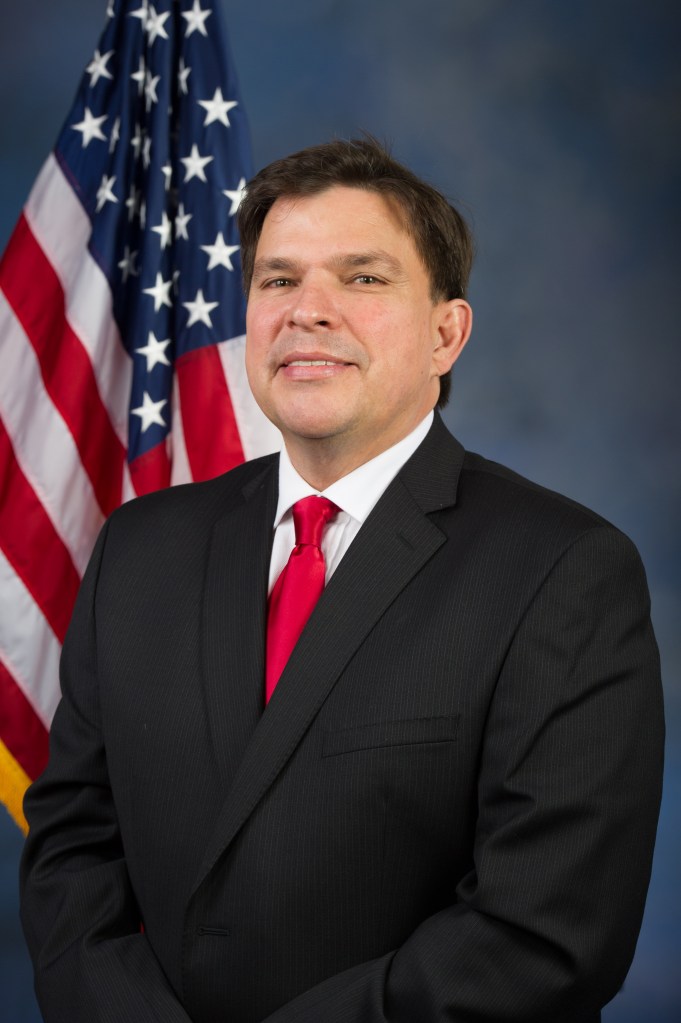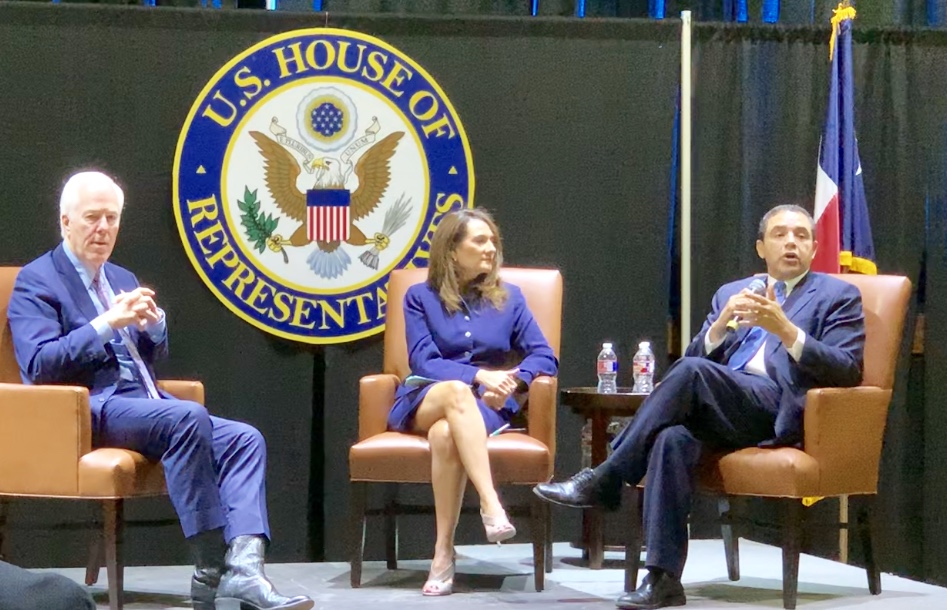McALLEN, Texas (Border Report) — U.S. Rep. Vicente Gonzalez, D-Texas, has sent letters to Mexican officials to ensure the implementation of the Safe Highway program will go smoothly, safely, and in a timely manner, and he has threatened his support for the U.S.-Mexico-Canada Agreement (the NAFTA replacement) unless these stipulations are met, according to a news release Tuesday from his office.

Gonzalez, whose South Texas district includes McAllen, on Thursday sent letters to Martha Bárcena, Mexican ambassador to the United States, and to Secretary of Security and Civilian Protection Alfonso Durazo urging Mexico to create a timeline for the implementation of the Safe Highway program, the news release said. He also asked for an assurance that Highway 40, which is part of the Safe Highway program and a connection to U.S.-Mexico international bridges, is secured before a vote on the United States-Mexico-Canada Agreement (USMCA) is considered in Congress.
“I am reluctant to support the agreement without a timeline for implementation of the Safe Highway program and an assurance that the roads connecting Highway 40D with our international bridges will be covered by this program,” Gonzalez wrote in a letter to Durazo.
Highway 40, which connects Monterrey, Nuveo Leon in Mexico, to McAllen, earlier this year was included in a highway security pilot program that Gonzalez helped to lobby Mexican President Andres Manuel Lopez Obrador and Durazo for.
Read in Spanish about the Mexican safe highway program here.
Last week, U.S. Sen. John Cornyn, R-Texas, and U.S. Rep. Henry Cuellar, D-Texas, spoke on a trade forum held in Pharr, Texas, during which Cuellar said he has been assured by House Speaker Nancy Pelosi that Congress will take up a vote on USMCA during this fall term.

The Safe Highway program, which includes Highway 40 from Monterrey, Nuevo Leon to Reynosa, Tamaulipas to McAllen, is one of six highways that will be part of this pilot program.
“For the United States and Mexico to continue reaping the benefits of North American trade, each country must fulfill its commitments to efficiency, security and rule of law,” Gonzalez said. “Proper implementation of the Safe Highway program will undoubtedly allow for the successful implementation of the United States-Mexico-Canada Agreement and encourage more cross-border commerce. I ask that the Mexican government make it a priority to secure Highway 40D all the way to each international bridge connecting Tamaulipas with South Texas.”
In March, Gonzalez traveled to Mexico City to meet with Secretary Durazo. During the meeting, he expressed the importance of securing Highway 40 — a major artery for cargo and passenger vehicles traveling between Monterrey, Reynosa, and the United States — for both trade and tourism, his office said.
Currently, there are no protection guarantees for freight and passenger vehicles leading up to the international bridges that connect the U.S. and Mexico which include: Pharr International Bridge; Anzalduas International Bridge; Veterans International Bridge; Starr Camargo Bridge; Donna Rio Bravo International Bridge; Gateway International Bridge; and the Juarez-Lincoln International Bridge, the news release said.
“By helping to secure merchandise that passes through its territory on a daily basis, Mexico will incentivize companies to further invest and export more merchandise without fear of extortion or theft,” Gonzalez wrote in his letter to Ambassador Barcena.
Speaker Pelosi had a conference call with Democratic leaders on Tuesday to discuss the USMCA. Cuellar said it appeared to be positive toward passage.
“People acknowledge Mexico and Canada want to get this done,” Cuellar said.
There are still the four issues that need to be resolved: Labor reform, enforcement, environmental issues and pharmecauticals.
“It looks like they are trying to get a ‘yes’ vote,” Said Cuellar, who is speaking a trade panel on Thursday in Monterrey, Mexico.
















